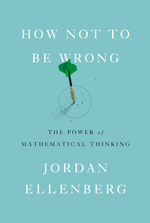The Selection Committee has chosen the winning title for 2015-2016:
Nominated by Susanna Eng-Ziskin. Kirkus Review: A is a 16-year-old genderless being who drifts from body to body each day, living the life of a new human host of the same age and similar geographic radius for 24 hours. One morning, A wakes up a girl with a splitting hangover; another day he/she wakes up as a teenage boy so overweight he can barely fit into his car. Straight boys, gay girls, teens of different races, body shapes, sizes and genders make up the catalog of A’s outward appearances, but ultimately A’s spirit—or soul—remains the same.... A tries to interfere as little as possible with the lives of the teenagers until the day he/she meets and falls head over heels in love with Rhiannon, an ethereal girl with a jackass boyfriend. A pursues Rhiannon each day in whatever form he/she wakes up in, and Rhiannon learns to recognize A—not by appearance, but by the way he/she looks at her across the room....Levithan’s self-conscious, analytical style marries perfectly with the plot. His musings on love, longing and human nature knit seamlessly with A’s journey. Readers will devour his trademark poetic wordplay and cadences that feel as fresh as they were when he wrote Boy Meets Boy (2003). An awe-inspiring, thought-provoking reminder that love reaches beyond physical appearances or gender. More information: Every Day: Resources for CSUN faculty and staff. |
Nominated by Susanna Eng-Ziskin. From the Being Wrong website: In Being Wrong, journalist Kathryn Schulz explores why we find it so gratifying to be right and so maddening to be mistaken, and how this attitude toward error corrodes our relationships—whether between family members, colleagues, neighbors, or nations. Along the way, she takes us on a fascinating tour of human fallibility, from wrongful convictions to no-fault divorce, medical mistakes to misadventures at sea, failed prophecies to false memories, “I told you so!” to “Mistakes were made.” Drawing on thinkers as varied as Augustine, Darwin, Freud, Gertrude Stein, Alan Greenspan, and Groucho Marx, she proposes a new way of looking at wrongness. In this view, error is both a given and a gift – one that can transform our worldviews, our relationships, and, most profoundly, ourselves. More information: New York Times book review. |
FINALIST: Walden on Wheels: On the Open Road from Debt to Freedom by Ken Ilguanas. 2013. 320 pages. Oviatt Library owns this book. Nominated by Debbi Mercado. Amazon synopsis: In this frank and witty memoir, Ken Ilgunas lays bare the existential terror of graduating from the University of Buffalo with $32,000 of student debt. Ilgunas set himself an ambitious mission: get out of debt as quickly as possible. Inspired by the frugality and philosophy of Henry David Thoreau, Ilgunas undertook a 3-year transcontinental journey, working in Alaska as a tour guide, garbage picker, and night cook to pay off his student loans before hitchhiking home to New York. Debt-free, Ilgunas then enrolled in a master’s program at Duke University, determined not to borrow against his future again. He used the last of his savings to buy himself a used Econoline van and outfitted it as his new dorm. The van, stationed in a campus parking lot, would be more than an adventure—it would be his very own “Walden on Wheels.” Freezing winters, near-discovery by campus police, and the constant challenge of living in a confined space would test Ilgunas’s limits and resolve in the two years that followed. What had begun as a simple mission would become an enlightening and life-changing social experiment. Walden on Wheels offers a spirited and pointed perspective on the dilemma faced by those who seek an education but who also want to, as Thoreau wrote, “live deep and suck out all the marrow of life.” |
Originally nominated by Lauren McDonald (2006). Re-nominated by Terri Silverberg. Amazon review: Enrique’s Journey recounts the unforgettable quest of a Honduran boy looking for his mother, eleven years after she is forced to leave her starving family to find work in the United States. Braving unimaginable peril, often clinging to the sides and tops of freight trains, Enrique travels through hostile worlds full of thugs, bandits, and corrupt cops. But he pushes forward, relying on his wit, courage, hope, and the kindness of strangers. More information: publisher's reading guide: discussion questions, activities, related books, and additional materials. NPR story about the book as a freshman common reading. Contains an interview with the author. The original story as it appeared in the Los Angeles Times. |
Nominated by Catherine Givertz. Catherine says: The book illustrates the nightmarish threat of a global flu pandemic and the drama of a broken family struggling to survive it. More information: author's website. Amazon review: Everything seems quiet on Ann Brooks’s suburban cul-de-sac. Despite her impending divorce, she’s created a happy home and her daughters are adjusting to the change. She feels . . . . confident that she can handle any other hardship that life may throw her way. But then, right before Thanksgiving, a crisis strikes that turns everybody’s world upside down. . . . Trapped inside the house she once called home, confronted by challenges she never could have imagined, Ann must make life-or-death decisions in an environment where the simple act of opening a door to a neighbor could jeopardize all she holds dear. |
Looking for Palestine: Growing Up Confused in an Arab-American Family by Najla Said. 2013. 272 pages. Oviatt Library does not own this book. Nominated by Kristyan Kouri. Kris notes that "Said (the daughter of famed academic Edward Said) speaks to a variety of contemporary issues--such as the Israeli/Palestinian conflict--with fairness and humanity." She adds that she really enjoyed the book. More information: NPR story from All Things Considered, 28 Jul 2013; review by Nasia Anam in the Los Angeles Review of Books, 31 Mar 2014. |
Nominated by Carol Shubin (no relation to Neil Shubin). Carol says the book is both "thought-provoking and entertaining." More information: YouTube video lecture by the author from RSA Animates; author's website with biography and book excerpts; short review from Scientific American. |
Nominated by Rodica Kohn. Detailed book review at the blog rkbookreviews: https://rkbookreviews.wordpress.com/2014/08/09/a-mind-for-numbers/ "The book can easily be read in an hour or two as it is filled with lot of images/ metaphors/ anecdotes and recurrent themes." More information: To Master Test Material, Give Your Brain a Break (Sicence Friday, 9/5/14); Author's website. |
Nominated by Nicole Dickson. Amazon review: Rich with storytelling, history, and folklore, The Lakota Way expresses the heart of Native American philosophy and reveals the path to a fulfilling and meaningful life. Joseph Marshall is a member of the Sicunga Lakota Sioux and has dedicated his entire life to the wisdom he learned from his elders. Here he focuses on the twelve core qualities that are crucial to the Lakota way of life--bravery, fortitude, generosity, wisdom, respect, honor, perseverance, love, humility, sacrifice, truth, and compassion. Whether teaching a lesson on respect imparted by the mythical Deer Woman or the humility embodied by the legendary Lakota leader Crazy Horse, The Lakota Way offers a fresh outlook on spirituality and ethical living. More information: author's website. |
Nominated by Aida Metzenberg. Aida says: I think it's well-written and the subject is excellent. It is certainly compelling. Booklist review (from Amazon): At 16, Hazel Grace Lancaster, a three-year stage IV–cancer survivor, is clinically depressed. To help her deal with this, her doctor sends her to a weekly support group where she meets Augustus Waters, a fellow cancer survivor, and the two fall in love. Both kids are preternaturally intelligent, and Hazel is fascinated with a novel about cancer called An Imperial Affliction. Most particularly, she longs to know what happened to its characters after an ambiguous ending. To find out, the enterprising Augustus makes it possible for them to travel to Amsterdam, where Imperial’s author, an expatriate American, lives. What happens when they meet him must be left to readers to discover. Suffice it to say, it is significant. Writing about kids with cancer is an invitation to sentimentality and pathos—or worse, in unskilled hands, bathos. Happily, Green is able to transcend such pitfalls in his best and most ambitious novel to date. Beautifully conceived and executed, this story artfully examines the largest possible considerations—life, love, and death—with sensitivity, intelligence, honesty, and integrity. Movie: 2014. |
Nominated by Susanna Eng-Ziskin. New Yorker review-essay: Can Nate Silver do no wrong? Between elections and baseball statistics, Silver has become America’s secular god of predictions. And now he has a best-seller, “The Signal and the Noise,” in which he discusses the challenges and science of prediction in a wide range of domains, covering politics, sports, earthquakes, epidemics, economics, and climate change. How does a predictor go about making accurate predictions? Why are certain types of predictions, like when earthquakes will hit, so difficult? For any lay reader wanting to know more about the statistics and the art of prediction, the book should be essential reading. More information: New York Times book review. |
Nominated by Nicole Dickson. Author's website: synopsis, discussion questions, interview, bio. NPR book review: And the Mountains Echoed is Hosseini's most ambitious work yet, its multifaceted story more globe-trotting than his best-selling first two novels, The Kite Runner and A Thousand Splendid Suns, and perhaps even more emotionally resonant. If at times some threads of the story don't quite match the heft of the rest, the effect of the whole is both unsettling and moving. |
Nominated by Nicol Jensen. Nicol says: This book, which is centered around the 9/11 attacks, caught my interest because it was written about a pivotal event in our country's history. Goodreads: Nine-year-old Oskar Schell is an inventor, amateur entomologist, Francophile, letter writer, pacifist, natural historian, percussionist, romantic, Great Explorer, jeweller, detective, vegan, and collector of butterflies. When his father is killed in the September 11th attacks on the World Trade Centre, Oskar sets out to solve the mystery of a key he discovers in his father's closet. It is a search which leads him into the lives of strangers, through the five boroughs of New York, into history, to the bombings of Dresden and Hiroshima, and on an inward journey which brings him ever closer to some kind of peace. More information: LitLovers |
Nominated by Susanna Eng-Ziskin. Author's website: Louisa Clark is an ordinary girl living an exceedingly ordinary life—steady boyfriend, close family—who has barely been farther afield than her tiny village. She takes a badly needed job working for ex-Master of the Universe Will Traynor, who is wheelchair-bound after an accident. Will has always lived a huge life—big deals, extreme sports, worldwide travel—and he is not interested in exploring a new one. Will is acerbic, moody, bossy—but Lou refuses to treat him with kid gloves, and soon his happiness means more to her than she expected. When she learns that Will has shocking plans of his own, Lou sets out to show him that life is still worth living. More information: New York Times book review. |
|
Nominated by Debbi Mercado. Debbi says: This book has received over 1800 5-star ratings on Amazon, and I would join that group. One reviewer aptly observes that the protagonist, 18-year old Victoria Jones, "will break your heart three ways from Sunday," and though that's true, I think she could also inspire freshmen readers whether they relate to her particular life circumstances or not. In the moment we meet Victoria, she is being emancipated from the foster care system, where she has bounced around for most of her life. With few choices, no family, no friends, and no money, she finds a unique way to survive in her lonely world. As old as that story line may sound, it is beautifully told through chapters that alternate between the present and the past, and gradually we begin to understand just how Victoria has arrived at this juncture in life. One thing that makes the story so memorable is its authenticity--it is hopeful yet realistic, and the ending is not predictable or tied neatly with a bow. Despite the title, which may seem geared for a female audience, the story is a page-turner and has much to say about hardship, independence, loneliness, family, forgiveness, the foster care system, resilience, and the basic goodness of people. |
Nominated by Nicol Jensen. Publisher's Weekly review: "I saw my father and grandfather shot in our living room," says Anton, a Bosnian teen who now lives in Nebraska. His teachers see him as a potential suicide, and he struggles to make sense of being an American high school student. Profiling Anton and other refugees from around the world—Russia, Croatia, Yemen, Hungary, Somalia, Ethiopia, Sierra Leone—bestselling author Pipher (Reviving Ophelia), drawing upon anthropology, sociology and psychology, offers a deft, moving portrait of the complexity of American life. |
Brain on Fire: My Month of Madness by Susannah Cahalan. 2012. 264 pages. Nominated by Susanna Eng-Ziskin. NPR book review: It's a cold March night in New York, and journalist Susannah Cahalan is watching PBS with her boyfriend, trying to relax after a difficult day at work. He falls asleep, and wakes up moments later to find her having a seizure straight out of The Exorcist....In Brain on Fire, the journalist reconstructs — through hospital security videotapes and interviews with her friends, family and the doctors who finally managed to save her life — her hellish experience as a victim of anti-NMDA receptor encephalitis. The result is a kind of anti-memoir, an out-of-body personal account of a young woman's fight to survive one of the cruelest diseases imaginable. And on every level, it's remarkable. |
Originally nominated by Sharron Kollmeyer Gerfen (2013): "I usually don't read biographies but this is much different, and actually not even really a memoir--hard to explain exactly what it is except that it is a very good story with lots of connections possible for our students in so many ways. My Beloved World inspired me." Re-nominated by Aida Metzenberg. More information: New York Times book review; Washington Post book review; NPR story. |
Nominated by Kate Stevenson. Los Angeles Times interview by Carolyn Kellogg (18 June 2014): In "How Not to Be Wrong: The Power of Mathematical Thinking," Jordan Ellenberg writes about when it's a good idea to buy lottery tickets, why tall parents have shorter children, a dead fish in an MRI machine, and overperforming mutual funds. Because he's a mathematician at the University of Wisconsin, these come with handwritten graphs and equations, but his explanations are cultural, his references literary. Amazon review: The math we learn in school can seem like a dull set of rules, laid down by the ancients and not to be questioned. In How Not to Be Wrong, Jordan Ellenberg shows us how terribly limiting this view is: Math isn’t confined to abstract incidents that never occur in real life, but rather touches everything we do—the whole world is shot through with it. More: Ellenberg's New York Times opinion piece "Don't Teach Math, Coach It" (7/24/14) |


 THE WINNER FOR 2015-2016: Every Day by David Levithan. 2012. 336 pages.
THE WINNER FOR 2015-2016: Every Day by David Levithan. 2012. 336 pages. 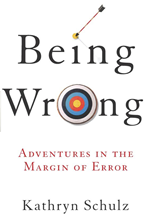 FINALIST: Being Wrong: Adventures in the Margin of Error by Kathryn Schulz. 2011. 416 pages. The AFYE library (in CIELO) owns this book.
FINALIST: Being Wrong: Adventures in the Margin of Error by Kathryn Schulz. 2011. 416 pages. The AFYE library (in CIELO) owns this book.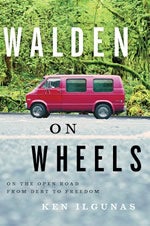
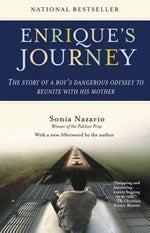 FINALIST: Enrique's Journey by Sonia Nazario. 2006. 300 pages.
FINALIST: Enrique's Journey by Sonia Nazario. 2006. 300 pages. 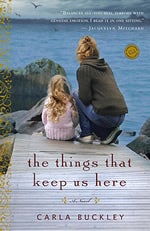 FINALIST: The Things that Keep Us Here
FINALIST: The Things that Keep Us Here 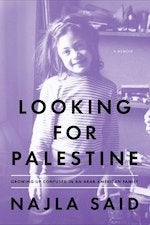
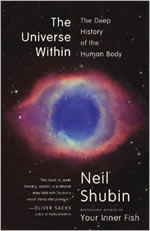 The Universe Within: The Deep History of the Human Body by Neil Shubin. 2013. 240 pages. Oviatt Library owns
The Universe Within: The Deep History of the Human Body by Neil Shubin. 2013. 240 pages. Oviatt Library owns 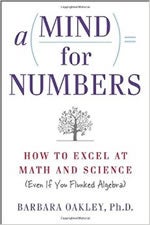 A Mind for Numbers: How to Excel at Math and Science (Even If You Flunked Algebra) by Barbara Oakley. 2014. 336 pages.
A Mind for Numbers: How to Excel at Math and Science (Even If You Flunked Algebra) by Barbara Oakley. 2014. 336 pages. 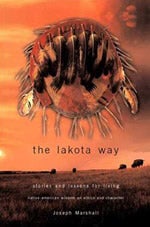 The Lakota Way: Stories and Lessons for Living by Joseph Marshall III. 2002. 256 pages.
The Lakota Way: Stories and Lessons for Living by Joseph Marshall III. 2002. 256 pages. 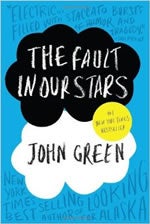 The Fault in Our Stars by John Green.
The Fault in Our Stars by John Green. 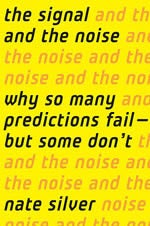 The Signal and the Noise: Why So Many Predictions Fail--But Some Don't by Nate Silver. 2012. About 500 pages.
The Signal and the Noise: Why So Many Predictions Fail--But Some Don't by Nate Silver. 2012. About 500 pages. 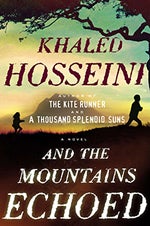 And the Mountains Echoed by Khaled Hosseini. 2013. 448 pages (paperback).
And the Mountains Echoed by Khaled Hosseini. 2013. 448 pages (paperback). 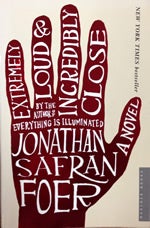 Extremely Loud & Incredibly Close: A Novel by Jonathan Safran Foer. 2005. 325 pages (paperback).
Extremely Loud & Incredibly Close: A Novel by Jonathan Safran Foer. 2005. 325 pages (paperback).  Me Before You: A Novel by Jojo Moyes. 2012. About 400 pages.
Me Before You: A Novel by Jojo Moyes. 2012. About 400 pages. 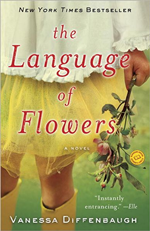 The Language of Flowers: A Novel by Vanessa Diffenbaugh. 2010. 352 pages.
The Language of Flowers: A Novel by Vanessa Diffenbaugh. 2010. 352 pages. 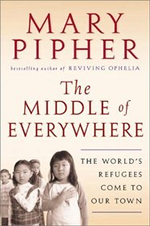 The Middle of Everywhere: The World's Refugees Come to Our Town by Mary Pipher. 2002. 416 pages.
The Middle of Everywhere: The World's Refugees Come to Our Town by Mary Pipher. 2002. 416 pages. 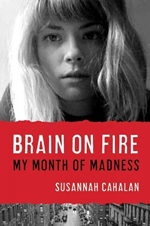
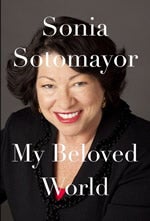 My Beloved World by Sonia Sotomayor.
My Beloved World by Sonia Sotomayor.